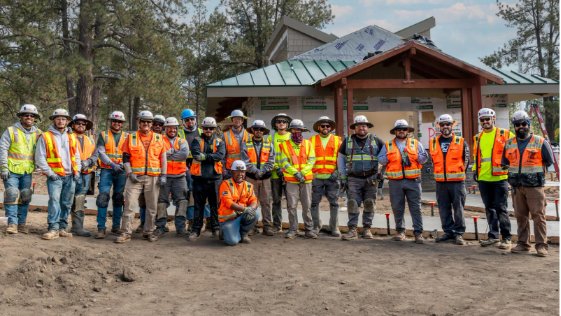In the construction industry, it’s not uncommon for team members to go from working on the crew to being in charge of the crew. The transition to supervising people the employee used to work alongside, or having a fellow coworker promoted to management, can be awkward. But it doesn’t have to be.
The biggest obstacle for new bosses to overcome is determining how to be friends with workers they supervise, while still having the workers’ respect when they need to act like the boss or ask employees to complete specific tasks. Keep the following tips in mind to make the transition easier.
1. New bosses don’t have to be friends with coworkers
It’s important to have a good, friendly and professional working relationship, but it’s not necessary to maintain a “best-of-buddies” relationship outside of the office (unless that’s the new boss’ choice). What’s best for the business may not be best for friendship, so expectations and boundaries must be set. Be clear and remember business comes before personal.
2. Earn workers’ trust and respect every day
New bosses typically are selected by company leadership, not the employees they manage. It’s important to demonstrate exceptional leadership at every opportunity. There are many ways to do this; here are 10 actions that will help new bosses earn employees’ trust and respect.
- Be reliable, do what you say you’ll do and follow up.
- Be available and approachable to listen, and be present when you do.
- Set clear expectations on the work to be done and hold workers accountable.
- Roll up your sleeves and lend a hand when the crew needs some help.
- Be respectful, treat people like you like to be treated and speak to them like they like to be spoken to.
- Show you care by humanizing yourself to help them grow professionally.
- Practice humility and give credit where credit is due.
- Use mistakes as an opportunity to teach and coach.
- Provide genuine and sincere appreciation and recognition for a job well done.
- Be fair and consistent in everything you do. The perception of favoritism will tear a crew apart and negatively impact the outcome of any project.
3. Don’t feel pressured to make popular decisions
Always make decisions that are best for the business. It’s important to be respectful of the implications of decisions on employees, but don’t compromise personal values just to make a popular decision.
It’s common in the construction industry for people to get promoted to be the boss of their coworkers. How they handle the transition is critical to their long-term effectiveness as a leader.







